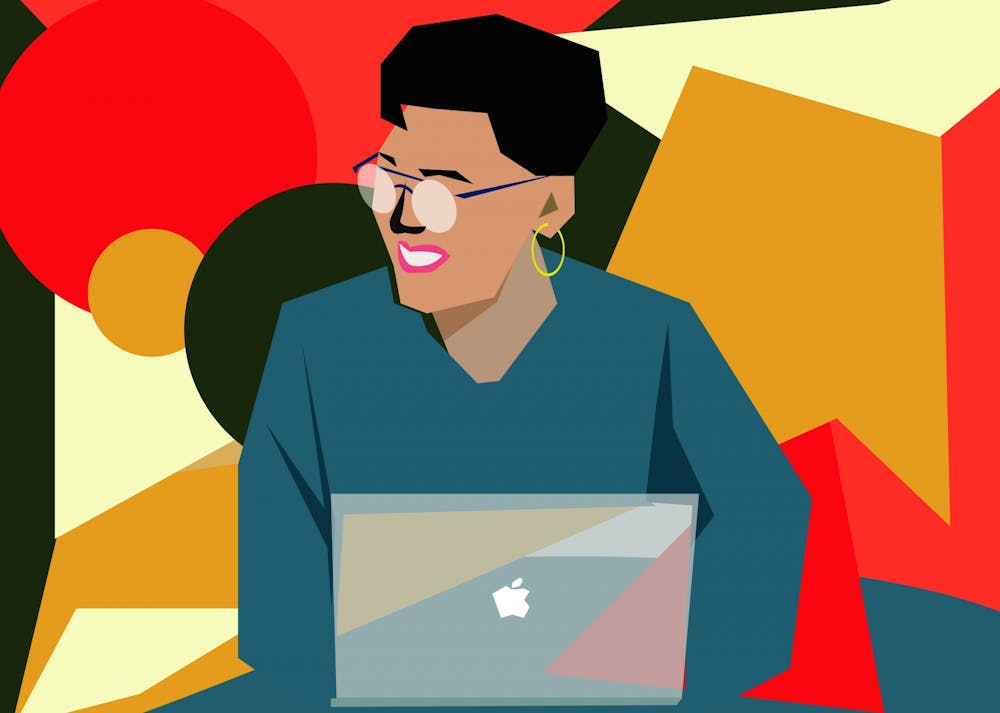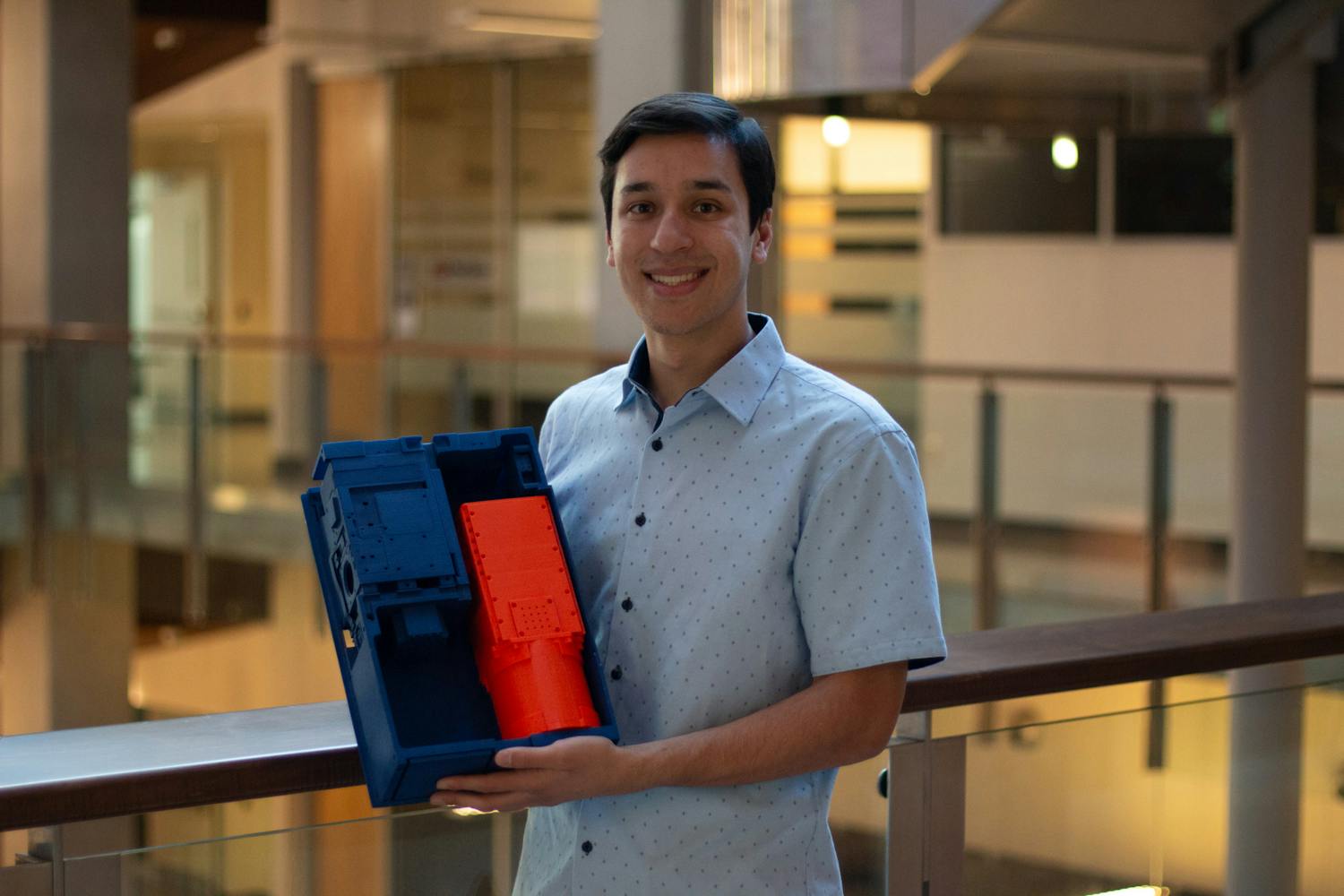ASU classes have been back in session for less than a month now, and things have been a train wreck ever since. On Jan. 17, we reported the highest number of COVID-19 cases ever recorded on campus, at a staggering 2,345 ASU community members testing positive for COVID-19.
Despite the fact that classes were virtual when cases were a fraction of the current numbers, ASU has turned a blind eye to the current situation and forced students to fend for themselves.
ASU's current COVID-19 "management" policy puts students at risk.
If ASU really cared about students, it would hold classes remotely. In-person classes show a disregard for immunocompromised students, staff and community members, putting their health in danger of long-term consequences.
At this stage in the pandemic, there is a general consensus among some that everyone is going to get COVID-19 at some point, so we should just let it blow through our population. While most of us will likely survive COVID-19, especially those of us who are vaccinated and boosted, the same cannot be said for immunocompromised people.
According to the American Society for Microbiology, COVID-19 vaccines are less likely to produce an immune response for cancer survivors and people who have had organ transplants. This means that these people are likely reliant on herd immunity, and with only 55% of Maricopa County residents at least partially vaccinated, we aren’t quite there yet.
The way that ASU is handling this current "inning" of the pandemic isn't anything new. After all, ASU caved to Doug Ducey's ridiculous agenda, not requiring vaccines among students, nor requiring testing among unvaccinated students.
"Honestly, I feel like we should be doing online at this point," said Malaysia Walton-Gaines, a freshman studying social work. "I know when we all came back from winter break, and people coming from different parts of the country and everything, there was such an outbreak in the dorms."
ASU has the resources to go back to remote learning if it wanted to. After all, the University blew $12 million of funding from the CARES Act on creating the infrastructure for ASU Sync and online learning. Why not use it?
"We certainly offer a quality level of instruction remotely … I think that the University does a really good job of that because there's such an online presence for the school, so I think it can be done," said Victor Fazio, a faculty associate with the School of Criminology and Criminal Justice.
At this point in the pandemic, we are forcing immunocompromised people to put their lives at risk every day in order to go to class while unvaccinated people continue to walk around spreading the virus without having to face any repercussions.
ASU students in the disability community have expressed their concerns about having in-person classes as more students call out sick. Some of these students worry that they may become seriously ill should they contract the virus.
The omicron variant is one of the fastest-spreading variants of the COVID-19 virus to date. Variants are created when more people get infected with a virus. We would not be in the situation that we are currently in if people cared enough about our immunocompromised population to get vaccinated.
The argument for in-person learning is the fact that the omicron variant is said to be milder than previous variants. As University of Virginia critical care physician Taison Bell said in an interview with NPR, "omicron is milder the same way that a hurricane is milder than a tornado."
The fact is, people who catch COVID-19, even mild to moderate cases, are still at risk for long COVID. Difficulty breathing, changes in taste or smell, brain fog, fatigue and a long list of other symptoms can last for weeks or months after infection, according to the Centers for Disease Control and Prevention. If we can do more to prevent this kind of thing from happening to people, why don't we?
At this point, it would be impossible for ASU to reverse the damage that it's done, but it can stop this outbreak now by going online until the outbreak subsides, and it require students to get vaccinated and boosted.
The current direction that ASU is going in has already led to a massive outbreak that could lead to long-term side effects for hundreds of students who were previously healthy. Even worse, immunocompromised students have to fear for their lives just to get an education.
But hey, as long as the University can make a quick buck, right?
Reach the columnist at htenore@asu.edu or follow @haleyyhmt on Twitter.
Editor's note: The opinions presented in this column are the author's and do not imply any endorsement from The State Press or its editors.
Want to join the conversation? Send an email to opiniondesk.statepress@gmail.com. Keep letters under 500 words and be sure to include your university affiliation. Anonymity will not be granted.
Like The State Press on Facebook and follow @statepress on Twitter.
Continue supporting student journalism and donate to The State Press today.

Haley Tenore is the editor of the State Press Opinion Desk. Tenore is also a digital reporter for Cronkite News and a co-president of the Accessibility Coalition. This is her fourth semester on the opinion desk and second semester as editor.




